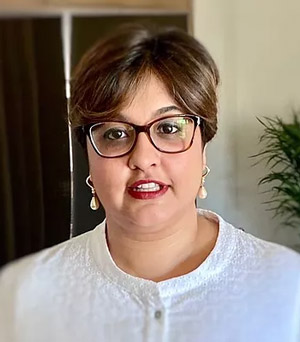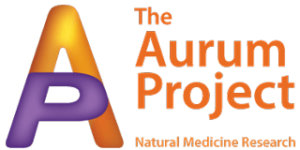An opinion piece by Homeopath Dimple Kirpalani and a case history.
One of the many beautiful aspects of homeopathy is that we can still experience a healthcare approach that is individual to our needs.
According to Prof. George Vithoulkas: “An important idea introduced by Hahnemann and which causes homeopathy to differ from conventional medicine is individualising. He maintained that there are no diseases, but only patients, and therefore a treatment must aim at treating the individual rather than the disease”.
So according to this idea, ten children who have an earache may each require a separate remedy. It would be good to have a practitioner carefully take a case history and individualise the symptoms and work out which remedy is needed.
Challenges can sometimes arise for parents, when it’s the middle of the night and they are deciding if they can manage with the remedy kit they have at home or if a more individualised consultation is required.

Dimple Kirpalani, Homeopath
A case that came into Dimple Kirpalani’s clinic last week got her to thinking, this is worth a thought and more.
A mother brought in her child – left ear otitis media. A fairly standard concern for homeopaths and normally I would say, “That’s easy…nothing to worry about.”
But the history of the case presented some challenges
Ear pain started 13 days ago. The mother used her home kit (as provided by many homeopaths), which she has been taught how to use by a separate homeopath. Since the pain came on in the middle of the night, she looked up the remedies and decided on Aconite – left ear, cold season. The child slept. Woke up the next day with nasal congestion. She gave the child Ferrum phos. 12x (inflammation) and Echinacea 30c (preventive) three times a day for the next couple of days. Both remedies were considered as part of the mini course that the mum attended, to extend her interest in Homeopathy.
Day six now, the child was worse, nasal discharge is thicker and yellowish, he is crying. So, she gives him Pulsatilla. Repeats this remedy three times over two days. She has also given him Chamomilla in the night because – “he was screaming in pain.” At this point she calls her regular homeopath who lives at a distance and because she has other children to look after as well, she has a tele-health consult. A consult ends with a Hepar sulph. prescription, which is part of her kit. He was better so she repeated the Hepar sulph. the next day as well. Without complete recovery, the mother contacted me as a homeopath within closer proximity. The condition of the child was now a burst ear drum and inflammation of glands. After some attempt at keeping the symptoms at bay with a first aid remedies, there is now a need to the bottom of the condition.
Dimple’s Individualised Approach
I believe there is a death of individualisation. A mental switch in expectations. From expecting to receive an individualised healthcare plan to needing a quick off the shelf fix.
Aphorism 118 in the Organon explains it with clarity that each Homeopathic remedy produces particular effects in the individual, and no other medicinal substance can create symptoms that are precisely similar. In Homeopathy there can be no substitution.
There are difficult cases wherein, the homeopath cannot see the distinctions; but, we need to keep in mind that there is ONE remedy that is needed in the case and it has no substitute, for that remedy differs from all other remedies, just as this individual differs from all other individuals.
This theory dictates, that in Homoeopathy medicines can never replace each other, nor one be as good as another.
From this perspective, is it acceptable for us to provide kits and “educate” people on “keynotes”? Are we forgetting the importance Kent placed on physical generals? Yes, we love Allen for his Keynotes and Boger and Boenninghausen for their Characteristics, but we know for a fact that they too strongly believed in individualisation. So why are we encouraging “substitution”.
In a way, we are to blame for the loss of faith some people have in Homeopathy. When we dole out kits and they don’t work, take the case above into consideration, it’s very easy for people to think Homeopathy is not ‘dependable’. However, the child above, has been extremely healthy and has not been drugged or medicated in anyways (apart from a few different homeopathics over the past 2 years for a variety of reasons).
Homeopathy is not child’s play. It is a very deep science and it needs to be honoured for its principles. Every Homeopath who puts in years of study and work in practicing this wonderful therapeutic modality would agree with me that its not just another ‘craft’ to learn. It requires hard work, understanding of the human body and mind and careful consideration of each case before a prescription can be made.
The above-mentioned case was then prescribed Mercurius solubilis 200c based on the totality of symptoms. Merc. Sol. covered 11 out of the 13 symptoms in repertorisation. Two doses eight hours apart were all that was needed. On day one, the child finally had a good night’s sleep since the onset of the ear pain. Over a period of one week the ear dried up, glands went back to normal and he was back to being a happy child. A follow up after three months show his hearing is almost back to normal. No remedy has been repeated. He is doing well. Now I treat the mother who came in with her health issues. She has been extremely nervous about using her kit but she has understood the principle of take one remedy and if it does not help, seek help.
Reversing the loss of individualisation is not easy, especially here in Australia where therapeutic prescriptions (i.e. using this set of remedies for this medical condition) abound. We need to step back and value our work, clear the mistaken beliefs that abound in society and keep stressing on the importance of Individualisation with every person who approaches us for help.
I think we need to keep stressing with each new student of homeopathy the importance of studying Organon and putting the principles into use. We need to make sure that students understand the importance of case taking and the concept of true individualisation. That’s when we can truly say we have done good and made a difference.
Thank you to Aurum Project member, Dimple Kirpalani for contributing this opinion piece to The Aurum Project blog.
